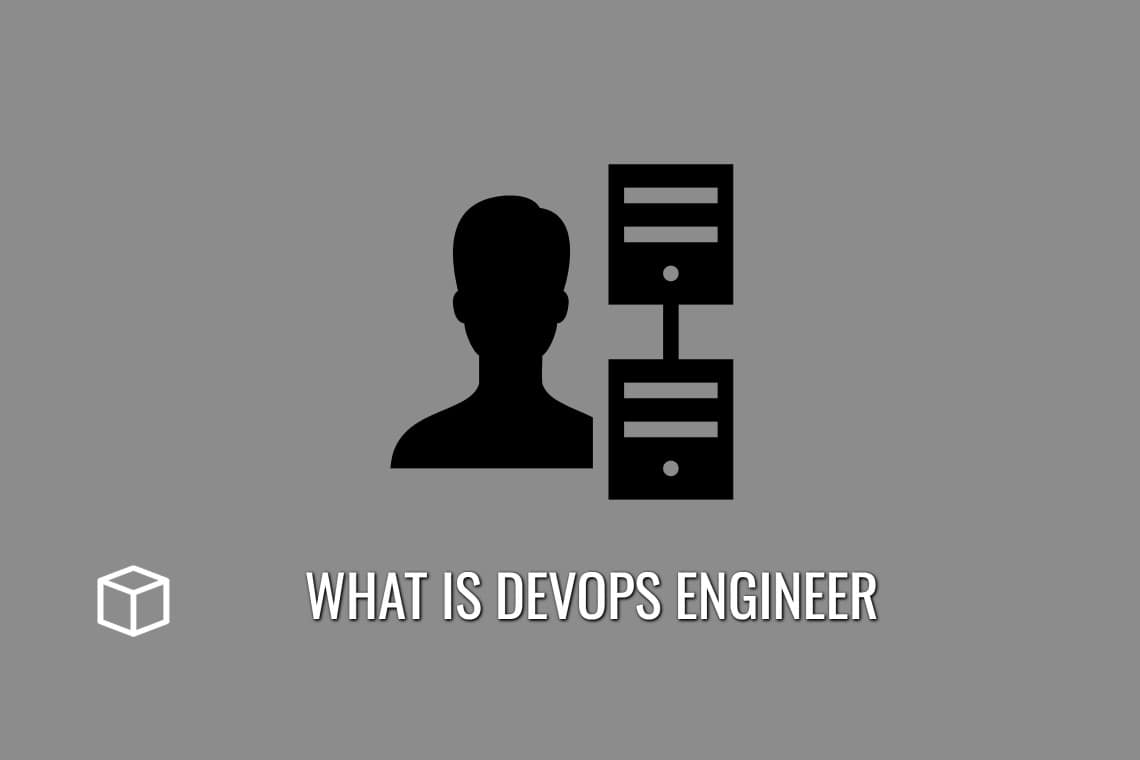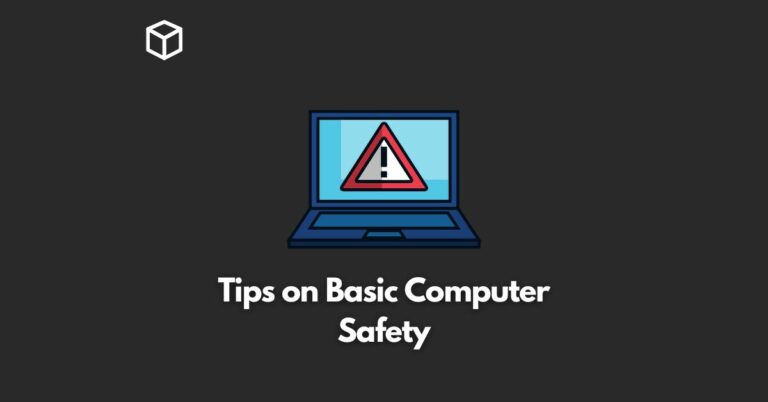Basically, DevOps is a term for integrating software developers and operations professionals in order to deliver quality products in shorter cycles.
The main goal behind this concept is to create more reliable systems that can handle errors effectively and more quickly.
A person who has a basic knowledge of cloud architecture and familiarity with AWS, Azure, Google Cloud and other hosting providers. They should also be familiar with Linux and its derivatives.
A typical DevOps engineer will also have a good knowledge of programming languages such as Java and Python.

In this article, we will look at DevOps Engineer role, responsibilities, salary and career scope using questions and answer format.
Let’s deep dive into this.
What is DevOps Engineer
A DevOps Engineer is an individual that is responsible for integrating software development with the operations of the business.
The individual needs to be proficient in scripting, version control, network management, and much more.
The DevOps Engineer needs to be able to understand the operational needs of the business and ensure that software development meets those goals.
The individual is also responsible for monitoring, troubleshooting, and performing roll outs/roll backs when necessary.
What does a DevOps Engineer do?
A DevOps Engineer’s duties are to oversee the deployment of an application.
They are in charge of designing, building, testing, and releasing software in order to meet the customer’s needs.
A DevOps Engineer also develops software. The engineer must be comfortable with both Linux and Windows systems.

These engineers often use JavaScript as well as Java and Python. Some DevOps Engineers implement automation systems such as Puppet and Chef.
They might also perform application deployments using Jenkins, Atlassian Bamboo, Microsoft Team Foundation Server, etc.
How to become a DevOps Engineer?
If you’re interested in DevOps, you’re going to have to get a degree in Information Technology.
However, if you already have experience with Linux and understand the server concepts, you might want to take a certification test called the Red Hat Certified Engineer (RHCE).
This is an open-sourced software that is used in Linux virtualization and cloud computing. The certification can require up to five years of experience and knowledge in order to take it.
Depending on what programming languages you want to use when becoming a DevOps engineer, there are other courses that will give you the skills needed for your desired position.
What are the Job Responsibilities of a DevOps Engineer?
As a DevOps Engineer, you might be expected to:
- Work with other team members to design the architecture of the software on which you work on.
- Perform tasks such as installation and configuration on both physical and virtual servers.
- Monitor system statistics and perform troubleshooting tasks.
- Ensure that security requirements are met on an ongoing basis.
- Maintain code quality through testing, debugging, and resolving defect reports.
- Continuously monitor production systems for resilience against complete service breakdowns.
- Create and maintain automation tools that will increase productivity.
- Stay abreast of the latest development in an effort to adopt new techniques when needed.
- Monitor changes to code, infrastructure, and services in continuous delivery environments.
- Implement security measures for cloud systems.
- Oversee project management with regards to integration.
- Collaborate as a team with other engineers and stakeholders as you work on your project.
What is the role of DevOps Engineer?
A DevOps engineer is a person who possesses and demonstrates skills and qualities that cater to the merging of two technical fields: software development and information technology operations.
They are an essential part of the IT team. The job title was created by combining the word “development” with “operations” due to the nature of their work which allows them to develop and deploy applications into production.
What is the difference between DevOps and Site Reliability Engineer?
A site reliability engineer is a type of systems engineer who works to establish policies and help design the solutions for making the system more reliable.
In contrast, DevOps professionals have a more specialized task – they work on improving the way in which software development and operations collaborate
to continuously deploy and update services on a regular basis. Both of these IT professionals focus on improving the user experience – reliability engineering makes systems more dependable as part of an organization’s approach to delivering better customer service, while DevOps improves how lines of business deliver new features and enhancements.
What does an entry level DevOps Engineer do?
The entry-level DevOps engineer is expected to develop coding skills. The entry-level DevOps engineer is also expected to maintain the coding integrity of the company’s applications.
They are also responsible for debugging and troubleshooting. Moreover, they are required to execute security measures and ensure that data privacy is maintained at all times.
Is DevOps easy to learn?
It’s easy to learn if you’re willing to put in the time, but it’s also hard because DevOps is always evolving. I would say that DevOps is never an easy task, but it can be done with time and lots of practice.
Tasks of DevOps Engineer
DevOps is the next generation of IT operations. A DevOps engineer has a whole new set of responsibilities.
They need to work both in the development team and the operations team. Generally, they are responsible for automating deployment, maintaining high availability and making sure things don’t fall apart when developers finish their tasks.
A few example tasks include:
- Eliminate all possible risks with code before it reaches production.
- Automate deployment process for faster releases.
- Monitoring system closely to find bugs faster.
- Investigate architecture design to find bottlenecks or anything that can cause performance problems.
Things to Know to Become a DevOps Engineer
To succeed as a DevOps engineer, there are some things that you need to understand.
1. The first thing that you need to know is the differences between Development and Operations.
The development team builds these wonderful products that we use everyday. They also maintain them in many cases when they break down or poor customer ratings call for an update.
The developers think it’s great when a new feature gets added to the product and they like it when customers use their products.
But sometimes there is an attitude that these wonderful creations should not need any attention once they are released to production. This leads developers to scorn operations or take them for granted.
2. The second thing that you need to know is how Development and Operations work together.
DevOps is a culture and a practice that encourages collaboration, continuous delivery and integration, and infrastructure as code.
There needs to be alignment between the development team using Agile or Lean methodologies and operations using ITIL or similar practices.
This is where the two teams meet in the middle through shared goals such as delivering high-quality products.
The organization needs to have a DevOps culture that encourages collaboration, continuous delivery and integration, infrastructure as code, alignment between development teams using Agile or Lean methodologies and operations using ITIL or similar practices.
3. Another important thing to know is the different roles in Development and Operations so you can be effective when working with others.
DevOps is a team sport. Developers and Operations people have different roles that require different skills to be effective.
4. Good knowledge of Agile Methodologies, Continuous Integration, AWS Cloud Administration, Performance Analysis.
Top DevOps Tools
- Terraform
- Ansible
- Slack
- Docker Enterprise Edition (EE)
- Jenkins
- Chef Automate
- Pivotal Container Service (PKS)
- Kubernetes
- Rancher
- VMware Photon Platform
Skills of a DevOps Engineer
A DevOps engineer is responsible for the on-call support that ensures that the infrastructure runs smoothly.
A DevOps engineer has to maintain server uptime, disaster recovery procedures and automation tools. He also needs to monitor best practices related to network, application performance and security incidents.
A DevOps engineer also needs to be able to fix specific pieces of hardware or software in order to get systems back on track during an outage. They should know how to manage risks associated with cloud computing and maintain networks while ensuring data protection.
A DevOps engineer will need proven skills like processes improvements, high availability solutions, system operations management and also experience with deployment utilities like Puppet or Chef.
The role of a DevOps engineer is to ensure that all the tools necessary for running and maintaining an organization’s applications are working efficiently. This individual will need to focus on automation, as well as compliance and operations.
For example, a DevOps engineer may be responsible for deploying and managing new servers and also for the verification and validation of updates before they are pushed out.
They will also need to ensure that there is no downtime for an organization’s applications, as well as to prevent performance degradation of existing services.
A DevOps engineer will need to be able to work closely with colleagues in an organization’s development department so that both groups can understand how updated code will affect production systems and vice versa.
Soft Skills of DevOps Engineer
A DevOps engineer needs to be able to communicate effectively and interact with team members smoothly. For software testing, an understanding of scripting languages is essential.
Moreover, a DevOps engineer must also be able to work on their own and complete tasks without any interruptions.
DevOps Engineer Salary
A DevOps engineer is compensated higher than their contemporaries. Recent research by Glassdoor reveals that the average salary for a DevOps engineer is around $115,000. That being said, it’s not unusual to see these engineers earning upwards of $130K.
Additionally, a 2016 White Paper by Indeed.com discovered that DevOps roles are showing a 131% year-over-year increase in full-time job postings – and the need for this specialized skill set is only going to grow as businesses look to adopt more agile practices .
How to get a DevOps Job?
Here are some of the tips:
1. Customize Your Resume for DevOps Roles
A resume is a window into who you are, what you’ve accomplished in your career, and why an employer should consider hiring you.
DevOps engineers are often required to have experience in a number of different areas. Depending on your role, you’ll need skills in programming, testing, automation scripting, and more but this versatility can make it difficult to craft a single resume that highlights all of your best qualifications.
Luckily, there are ways around this problem. Even if you don’t have extensive experience with all of these areas, the right words can help highlight your talents.
For one, you could list out all of the programming languages that you know, then organize them by strength to indicate which are most impressive. You could also write a short description about what each technology is used for.
For testing-related skills , emphasize your familiarity with test case management, as well as the types of tests you’ve been responsible for. If you’re familiar with automation scripting , include a brief description of tools that come in handy, or projects where they were used.
The goal is to make it easy for a recruiter to realize what sort of projects will be a good fit for you.
2. Get Specific With Your Experience
As we’ve already mentioned, DevOps engineers need to be comfortable with many different aspects of software development and IT operations.
It can take a lot of time and effort to gain this versatility . However, it’s possible that your resume only showcases narrow experience within these fields—and employers will be turned off if you don’t seem able to do the job.
Not only can this be a waste of an opportunity for you, but it also reflects poorly on the company who’s hiring. Businesses want to fill positions with candidates who are excited and capable of succeeding in their organization—not someone who will give up after a few months and require expensive re-training.
Accordingly, both you and the company will benefit if you go into the interview with a list of specific capabilities that you’d like to demonstrate.
You can claim that your diverse skillset is ideal for DevOps positions , but it’s up to you to prove it by listing out concrete tasks in which you’ve used these talents to be successful.
For example, you could say that ” I have experience working with multiple programming languages , including HTML, JavaScript, PHP, Python, and C#.” Or “I’m comfortable working in Linux environments , as well as managing Windows servers within a network infrastructure.”
3. Check Out Job Boards
DevOps engineers frequently look for work on Indeed.com, simply because the site has so much traffic. However, it’s important to remember that not every DevOps job will be listed there—especially because many of these opportunities are based in specific cities or companies.
This is an especially relevant concern if you’re looking to relocate . In this case, it may be helpful for you to check out other job boards, like Dice.com or SimplyHired.com or even search for DevOps websites that list openings specific to your area of expertise .
4. Participate in Social Networks
It’s impossible to know where you’ll find a great opportunity unless you’re already aware of what’s available. That’s why you should consider getting involved in social networks for DevOps professionals, like GitHub or Reddit .
By doing this, you’ll be able to expand your network and find out about companies that might not otherwise have made it onto your radar. If you keep tabs on these sources of information , you’ll know where the best jobs are listed—and which ones are likely to be a good fit.
5. Stay Up-to-Date with Industry News
Finally, you’ll want to consider browsing news sites regularly for information on your target market . Even if these portals don’t have openings themselves, they can help you stay educated about industry trends and what kinds of tasks are becoming popular among employers.
If you’re always learning about new technologies and practices , then recruiters will assume that you’re growing your skillset. This will ultimately make you more attractive to high-paying employers, because it’ll show how proactive you are in terms of developing yourself.
By following this advice, it should be much easier for DevOps engineers to successfully find their ideal job.
Best DevOps Engineer Certifications
Certifications are the most important thing to have on your resume when applying for a job. They are also important because you can use them for interviews, to put on your LinkedIn, or list of achievements. Certifications are not something you can get in a day or two though, it takes several months to complete some of the more advanced ones.
List of Best DevOps Engineer Certification:
- DevOps Foundation Certification
- DevOps Practitioner Certification
- AWS Certified DevOps Engineer
- Certified Cloud Security Professional
- Microsoft Certified Solutions Associate – Cloud Platform & Infrastructure
- Official Citrix Cloud Expert (CCE) certification
- HPE-OCS – OpenShift Container Certification
- Lean IT for Professional Certification
DevOps Engineer Training Courses
Best DevOps Engineer Training Courses:
- The Ultimate DevOps Bootcamp
- AWS DevOps Essentials
- Cloud Security & Automation with Google Cloud Platform
- Infrastructure as Code Masterclass
- Mastering AWS Infrastructure as Code
- DevOps on Google Cloud Platform
- Implementing Automation and Governance with CloudOps
- Learning Path – Introduction to Operational Excellence on Oracle Cloud
- The Complete Kubernetes Solution: From Enterprise Strategy to Hands-on Execution
- Mastering Jenkins.




